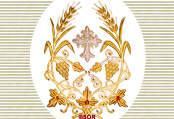
 |
|
||
|
Agreement on Interchurch Marriages between the Catholic Church and the Malankara Syrian Orthodox Church January 25, 1994 |
|
OO Meetings
Other Dialogues
|
This agreement between the Catholic Church and the Malankara Syrian Orthodox Church on interchurch marriages has been prepared taking into account the following elements of the Common Declaration of Pope John Paul II and the Syrian Orthodox Patriarch Zakka I Iwas of Antioch, dated 23 June 1984:
Having considered the above mentioned events and declaration, the Malankara Syrian Orthodox Church and the Catholic Church agreed on the following considerations and norms. As our two churches believe in and confess the mystery of the Church and its sacramental reality, we consider it our duty to specify the areas of agreement in cases of marriages between the members of our two churches. Man and woman created in the image of God (Gen. 1: 26,27) are called to become sharers of the eternal divine communion. The sacrament of marriage is an image of this divine communion. Marital intimacy and self-effacing sharing are reflections of the deepest interpersonal sharing within the Trinitarian communion. Hence this intimate marital communion is divinely confirmed by Christ with the seal of unity and of indissolubility, and ordered toward the good of the spouses and the generation and education of the offspring. He answered, "Have you not read that he who made them from the beginning made them male and female, and said, For this reason a man shall leave his father and mother and be joined to his wife and the two shall become one flesh?" What therefore God has joined together, let no man put asunder. (Mt. 19:46). Marriage is a great sacrament of divine communion and St Paul compares the mutual relationship of the husband and wife to the mystery of communion between Jesus Christ and his Church (cf. Eph. 5: 21-26; Tit. 2:3f; I Pet. 3: if; Rev. 18:7, 21:2). St Paul calls it a great mystery: "This mystery is a profound one, and I am saying that it refers to Christ and the Church" (Eph. 5:32). Hence we believe that the sacrament of marriage bearing the image of the eternal divine communion is also an image of the most intimate communion between the Risen Bridegroom with his Bride, the Church. The Church is the primordial sacrament of the eternal divine communion and, through the celebration of her sacramental mysteries; she deepens her communion with the divine Spouse and enables her members to participate in the divine life. Our two churches accept the sacredness and indissolubility of the sacramental bond of marriage and consider the conjugal relationship as an expression of the above communion and a means to achieve self effacing mutual love and freedom from selfishness, which was the cause of the fall of humanity. In this theological perspective, taking into account the question of the marriages between the members of our two churches, we consider it a matter of our pastoral concern to provide the following directives. Our two churches desire to foster marriages within the same ecclesial communion and consider this the norm. However, we have to accept the pastoral reality that interchurch marriages do take place. When such occasions arise, both churches should facilitate the celebration of the sacrament of matrimony in either church, allowing the bride/bridegroom the right and freedom to retain her/his own ecclesial communion, by providing necessary information and documents. On the occasion of these celebrations, the couples as well as their family members belonging to these two churches are allowed to participate in the Holy Eucharist in the church where the sacrament of matrimony is celebrated. We consider it also the great responsibility of the parents to pay special attention to impart to the extent possible and in mutual accord proper ecclesial formation to their children in full harmony with the tradition of the ecclesial communion to which they have to belong. The agreement was drafted in November 1993 and released on January 25, 1994, after approval from Pope John Paul II and Patriarch Zakka I. Pastoral GuidelinesThe Pastoral Guidelines which follow the text of the Agreement state that "the pastors of both partners are bound in conscience to provide continued pastoral care to interchurch families in such a way as to contribute to their sanctity, unity and harmony." The couples are "allowed to participate jointly in the Eucharistic celebration on special occasions when this joint celebration is socially required". Communion at the WeddingReciprocity. The Malankara Syrian Orthodox Church is an autonomous church under the authority of the Syrian Orthodox Patriarch of Antioch. It is thus one of those Eastern churches, which the Roman Catholic Church recognizes as close in faith to itself and "in possession of true sacraments, notably the priesthood and the Eucharist" (Decree on Ecumenism, n.14, 15). For this reason the bride and groom are allowed to receive communion together, whether the wedding and wedding Eucharist takes place in a Catholic church or in a Malankara Syrian Orthodox church. Family members. This document makes explicit provision for the wider family to receive communion together at the wedding, not simply the bride and groom. Source: Association of Interchurch Families, England |
| Copyright © Syriac Orthodox Resources. All Rights Reserved. |
| Last Update: February 16, 2001 |